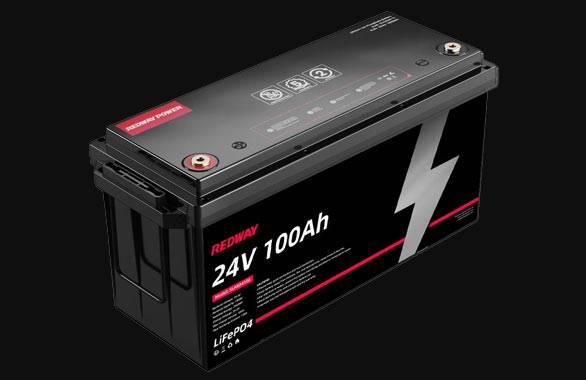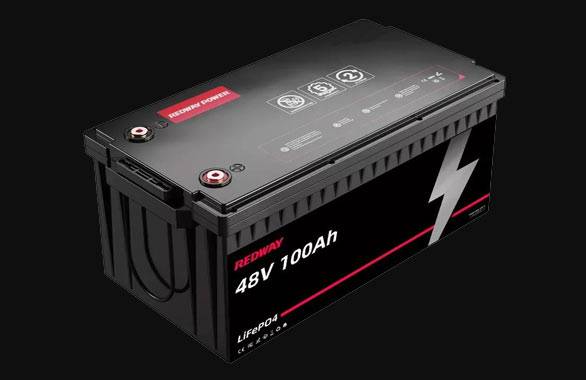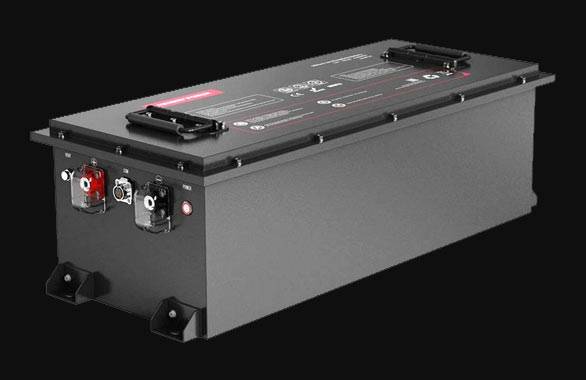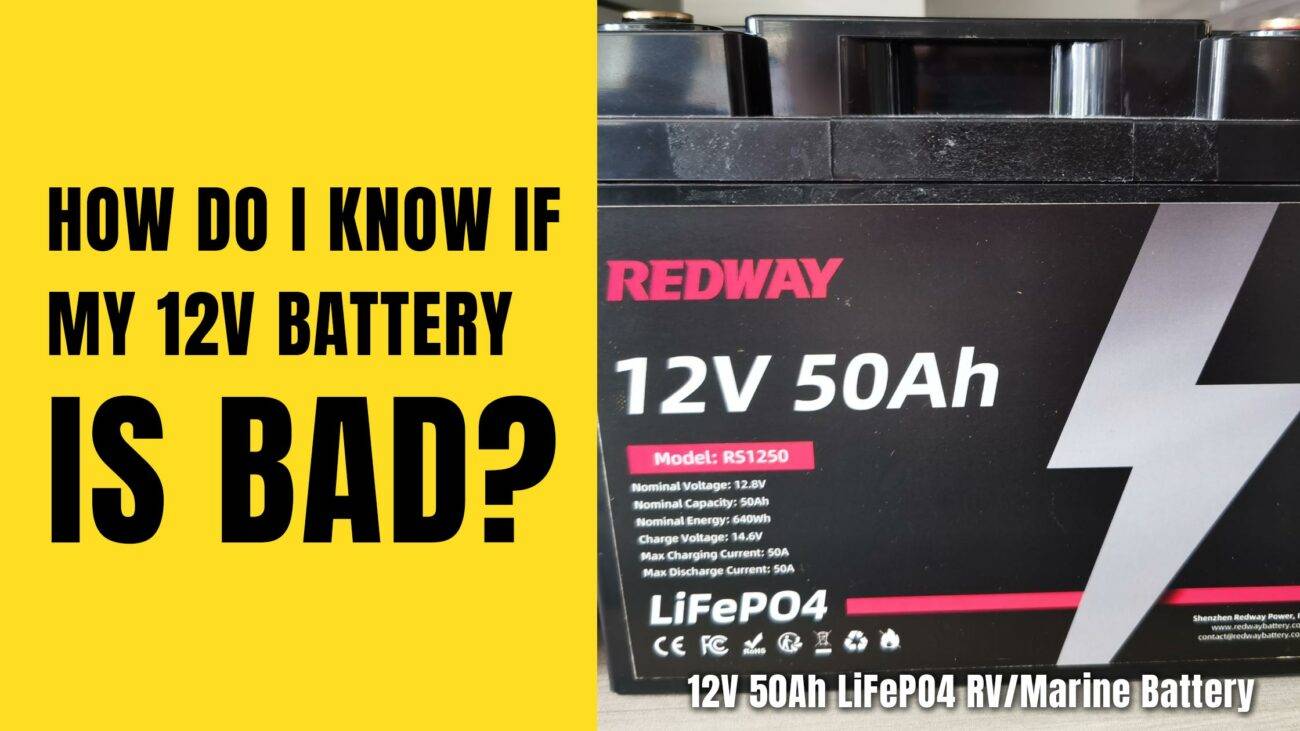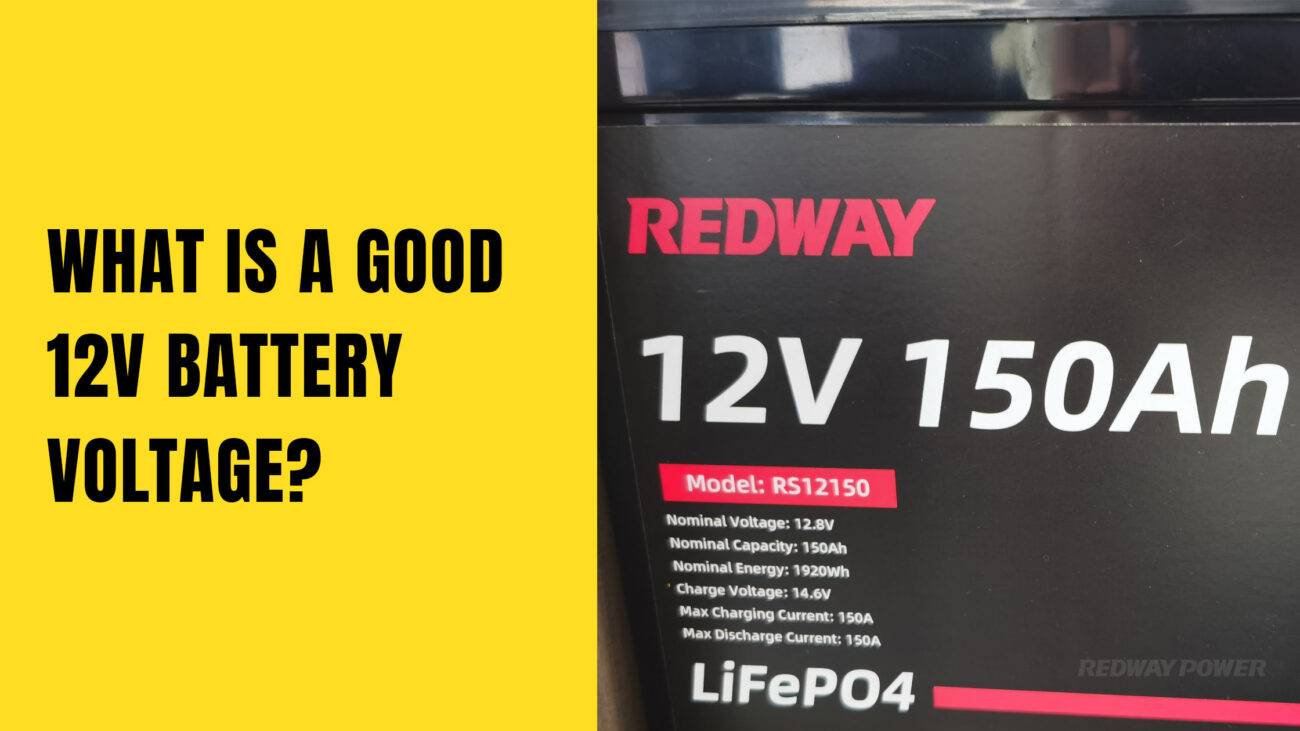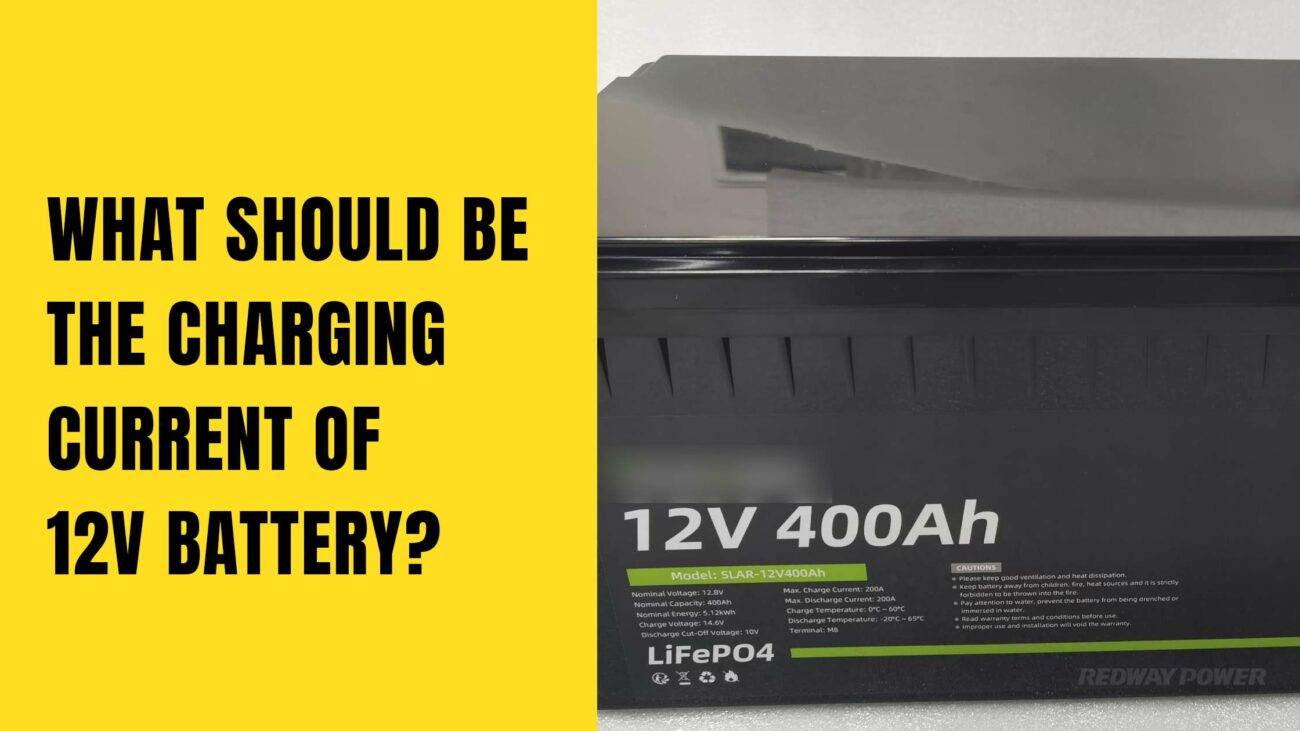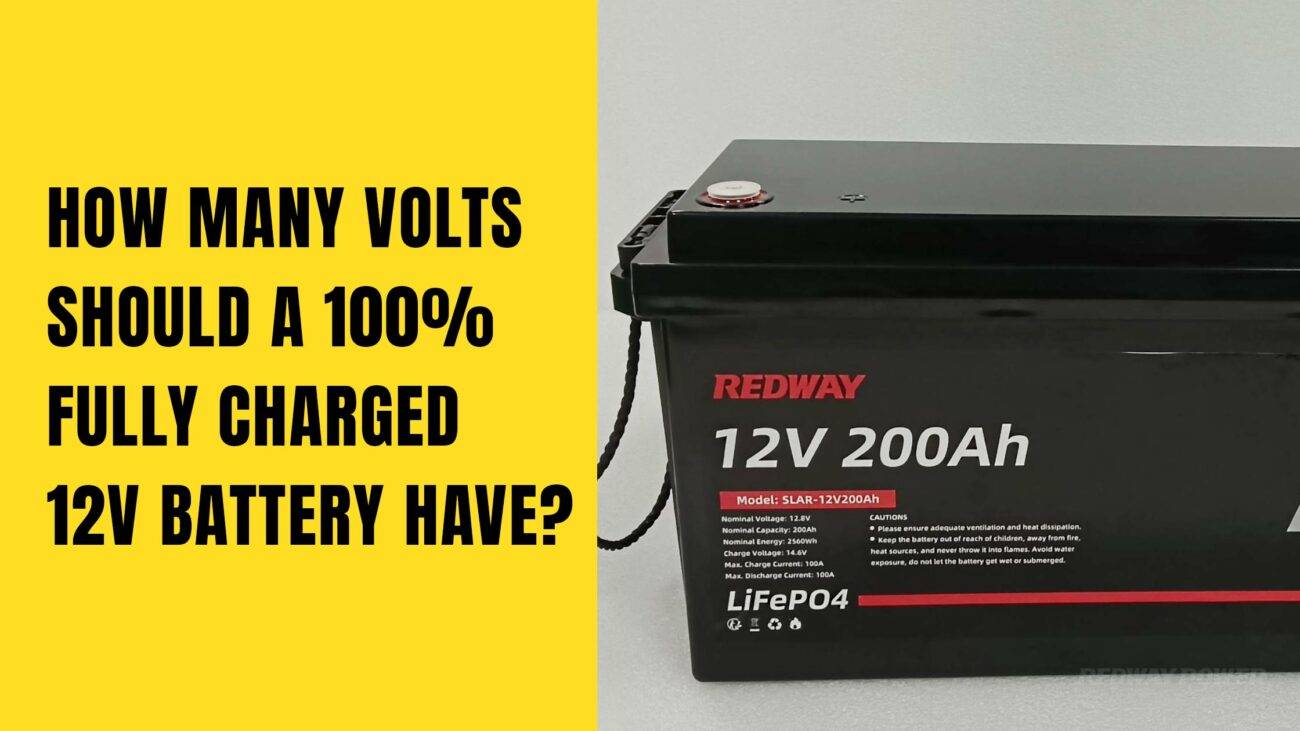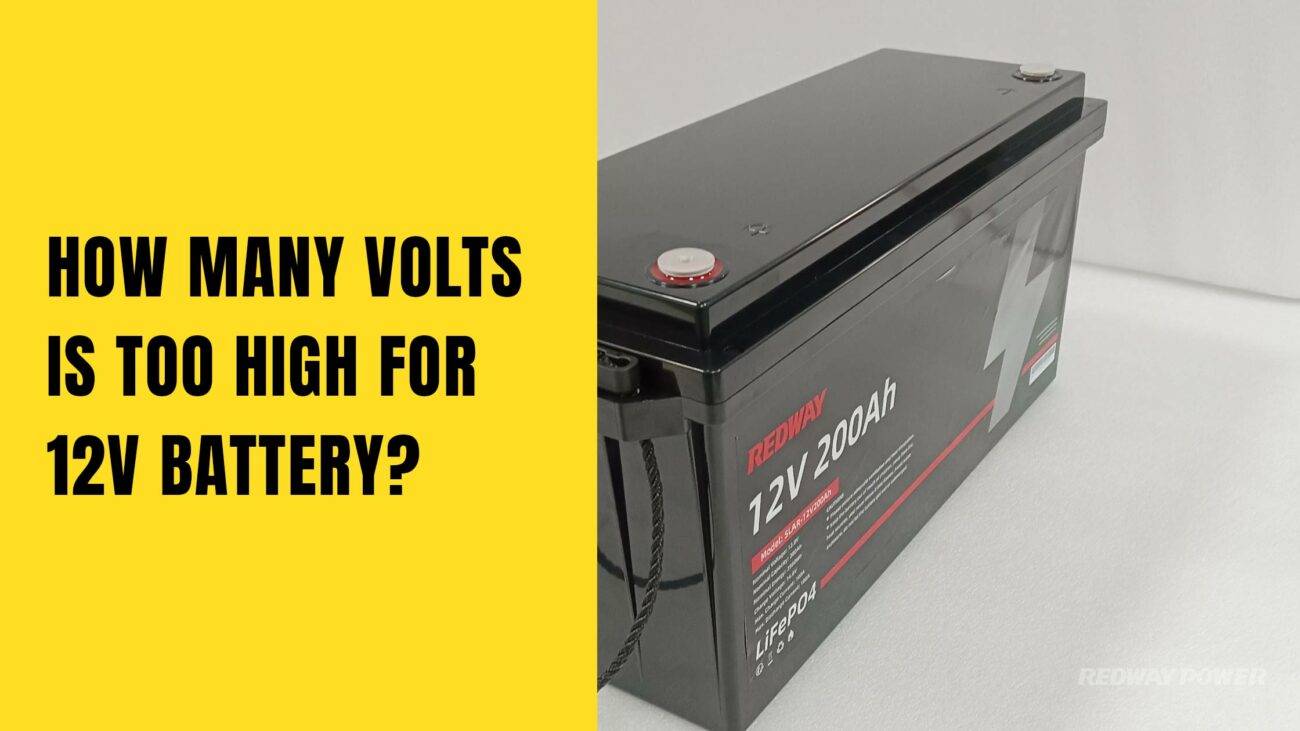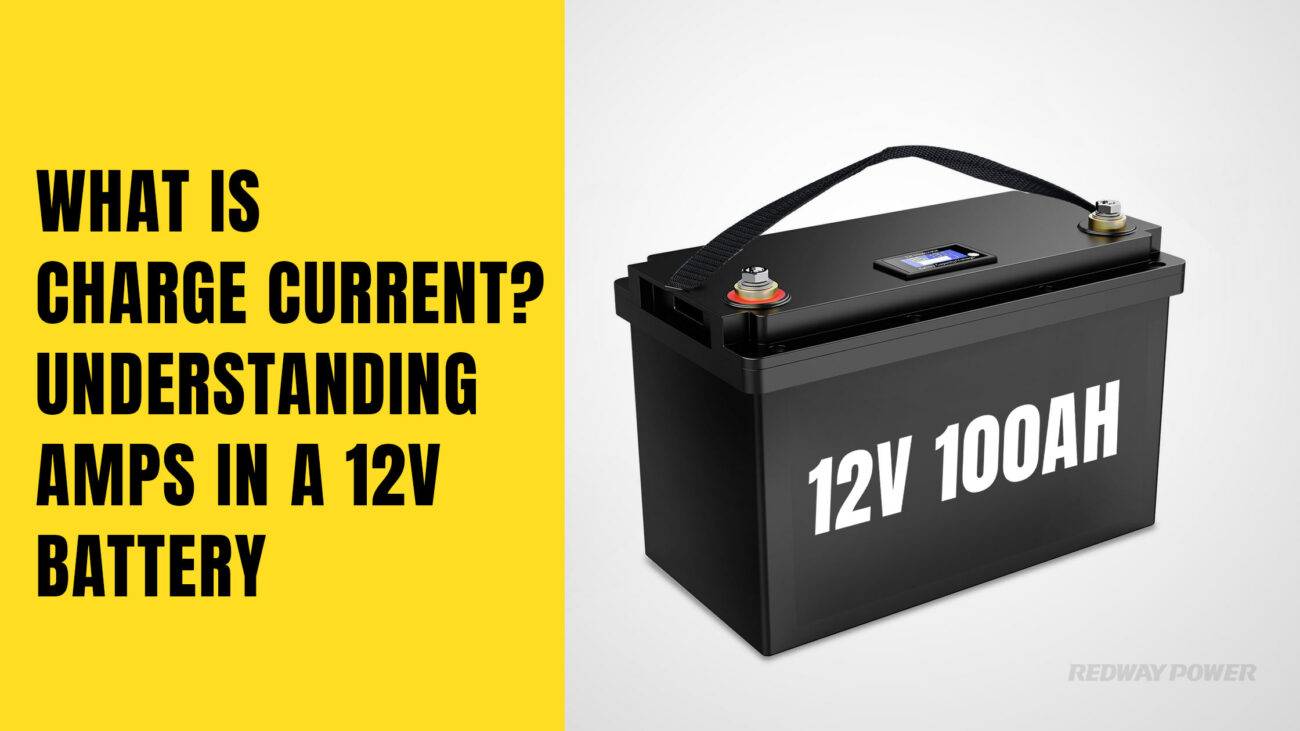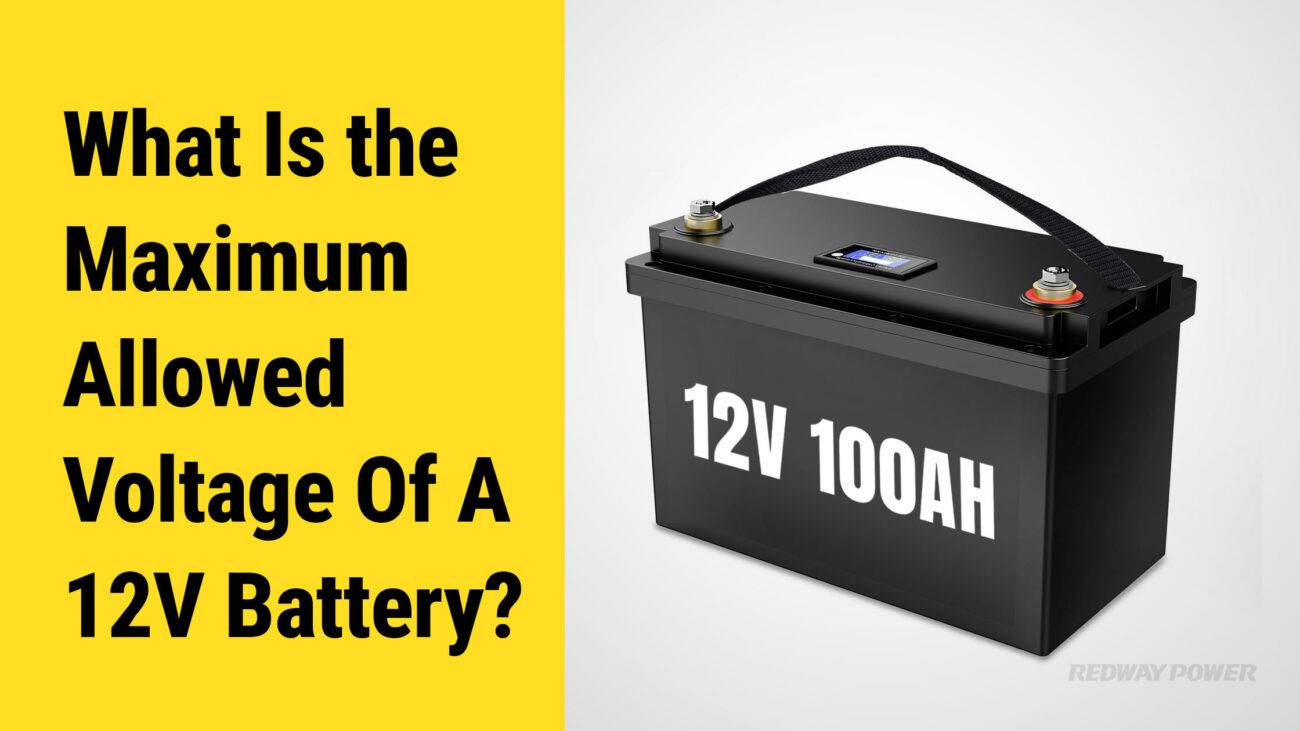- Forklift Lithium Battery
- Golf Cart Lithium Battery
- Rack-mounted Lithium Battery
51.2V 100Ah Rackmount LiFePO4 Battery
8000 times (80% DOD 0.5C)
Optional SNMP for TELECOM - Car Starter Battery
- 12V LiFePO4 Battery
12V 150Ah Lithium RV Battery
Bluetooth App | Self-heating
LiFePO4 | Group 31
UL 1642 | IEC 62619 - 24V LiFePO4 Battery
- 36V LiFePO4 Battery
- 48V LiFePO4 Battery
- 60V LiFePO4 Battery
60V 100Ah Lithium Battery (AGV, AMR, LGV)
Peak Discharge Current 400A
500 x 298 x 349 mm - 72V~96V LiFePO4 Battery
72V 100Ah Lithium Golf Cart Battery
Peak Discharge Current 315A (10S)
740 × 320 × 246 mm - Wall-mounted Lithium Battery
51.2V 100Ah 5kWh
Wall-mounted Battery532 x 425 x 170 mm / LiFePO4
>8000 Cycles (80% DOD 0.5C)
RS485 / CAN-bus
for Solar Home ESS - Home-ESS All-in-One
51.2V 32kWh
All-in-On HESS SystemPowerAll
51.2V / LiFePO4
>8000 Cycles (80% DOD 0.5C)
RS485 / CAN-bus / WiFi
All-in-One for Home ESS
How to Properly Test a 12V Battery Using a Multimeter

Testing a 12V battery with a multimeter ensures you know its charge status and health accurately before relying on it. By carefully setting your multimeter, understanding voltage readings, and following safety steps, you can determine if the battery is fully charged, partially discharged, or needs replacement. This quick diagnostic helps prevent unexpected failures and prolongs battery life with proper maintenance.
How do I prepare my multimeter and safety gear for testing a 12V battery?
Start by ensuring your multimeter is functional with fresh batteries and clean probes. Wear safety gloves and goggles to protect against potential acid leaks or sparks. Connect the red (positive) probe to the multimeter’s VΩmA port and the black (negative) probe to the COM port. Setting up properly and prioritizing safety are essential first steps for effective testing.
How should I set my multimeter to test a 12V battery?
Turn the dial to measure DC voltage, indicated by a “V” with a solid line over a dashed line. Select the closest voltage range above 12V, typically 20V, to allow precise measurement without damaging the meter. This setting enables accurate detection of typical 12V battery voltages and differentiates full, partial, or low charges.
How do I locate and identify the battery terminals for testing?
Identify the positive (+) and negative (-) terminals on the battery, usually labeled and sometimes color-coded (red for positive, black for negative). Ensure terminals are clean and free from corrosion. Connect the red probe to the positive terminal and the black probe to the negative terminal, maintaining steady contact to get a stable voltage reading.
What voltage readings indicate a healthy, partially charged, or discharged 12V battery?
A fully charged 12V battery should show approximately 12.6 to 12.8 volts. A reading between 12.4 and 12.6 volts means the battery is around 75% charged and generally in good condition. Voltages below 12.4 volts indicate a discharged battery requiring charging or potential replacement. Readings under 12.0 volts signal a weak battery likely unable to perform well.
How can I perform a load test using a multimeter and what does it reveal?
A load test, while requiring a load tester in addition to the multimeter, simulates the battery’s performance under real-world conditions by applying resistance and measuring voltage drop. Significant voltage drops under load indicate poor battery health or internal resistance issues. For basic multimeter users, observing voltage during engine cranking also offers insight into load performance.
Chart: 12V Battery Voltage Status Guide
| Voltage Reading (Volts) | Battery Condition | Suggested Action |
|---|---|---|
| 12.6 – 12.8 | Fully charged, Healthy | Use normally |
| 12.4 – 12.6 | Moderately charged, Good | Monitor or charge if needed |
| 12.0 – 12.4 | Low charge, Weak | Recharge or test further |
| Below 12.0 | Discharged, Poor/Failing | Replace or deep service needed |
What are common mistakes to avoid when testing a 12V battery with a multimeter?
Avoid reversing probe polarity, failing to set the correct voltage range, testing batteries with dirty or corroded terminals, and measuring voltage on a battery connected to charging equipment. Performing tests without protective gear or in poorly ventilated areas also risks safety. Accurate measurement demands attention to detail and correct procedures.
How does temperature affect 12V battery voltage test results?
Cold temperatures can lower battery voltage readings temporarily as chemical reactions slow down, sometimes making a healthy battery appear weaker. Conversely, high temperatures can increase voltage but may degrade battery life over time. Testing batteries at moderate temperatures ensures more reliable and consistent results.
How often should I test my 12V battery to maintain optimal performance?
Regular voltage testing every few months helps catch discharge early and maintains battery health. Before seasonal changes or heavy usage periods is also recommended. Frequent checks combined with proper maintenance extend battery life and prevent unexpected failures, optimizing the performance of your equipment or vehicle.
How does Redway Power ensure battery quality related to voltage stability?
Redway Power employs advanced Manufacturing Execution System (MES) technology to monitor battery production processes meticulously, guaranteeing consistent voltage outputs and capacity across batches. Their ISO 9001:2015 certified quality management system ensures stable, reliable battery performance for diverse applications, supporting users with dependable power and longevity.
What additional tools or methods complement multimeter testing for a full battery health assessment?
Complementary tests include using a dedicated battery load tester, conducting a conductance test to assess internal resistance, and thorough visual inspections for leaks or corrosion. Combined with voltage testing using a multimeter, these methods provide a comprehensive picture of battery condition, enabling confident maintenance or replacement decisions.
Redway Power Expert Views
“Using a multimeter correctly to test 12V batteries is fundamental to accurate diagnosis and extending battery life,” explains a Redway Power battery expert. “Our commitment to manufacturing batteries with precise voltage control supported by MES technology means users can expect consistent, reliable performance. Pairing quality batteries with proper testing empowers users to avoid downtime and costly replacements.”
Conclusion
Properly testing a 12V battery with a multimeter involves careful setup, accurate voltage measurement, and correct interpretation of results to assess battery health. Understanding voltage ranges that indicate full charge, partial charge, or failure aids timely maintenance and replacement. Combined with advanced manufacturing and quality assurance exemplified by Redway Power, effective testing ensures reliable power for your vehicle or equipment’s needs.
FAQs
What should I set my multimeter to for testing a 12V battery?
Set it to DC voltage mode and select a range just above 12 volts, usually 20V.
Can a multimeter test battery health beyond voltage?
Primarily voltage, but combined with load testing can indicate overall health.
How do I know if my battery needs replacing based on voltage?
Voltage below 12.4 volts at rest suggests charging, below 12.0 volts often means replacement.
Is it safe to test a 12V battery while installed in a vehicle?
Yes, but ensure vehicle is off and avoid contact with moving parts.
How often should I test my battery voltage?
Every 3-6 months or when facing performance issues.







